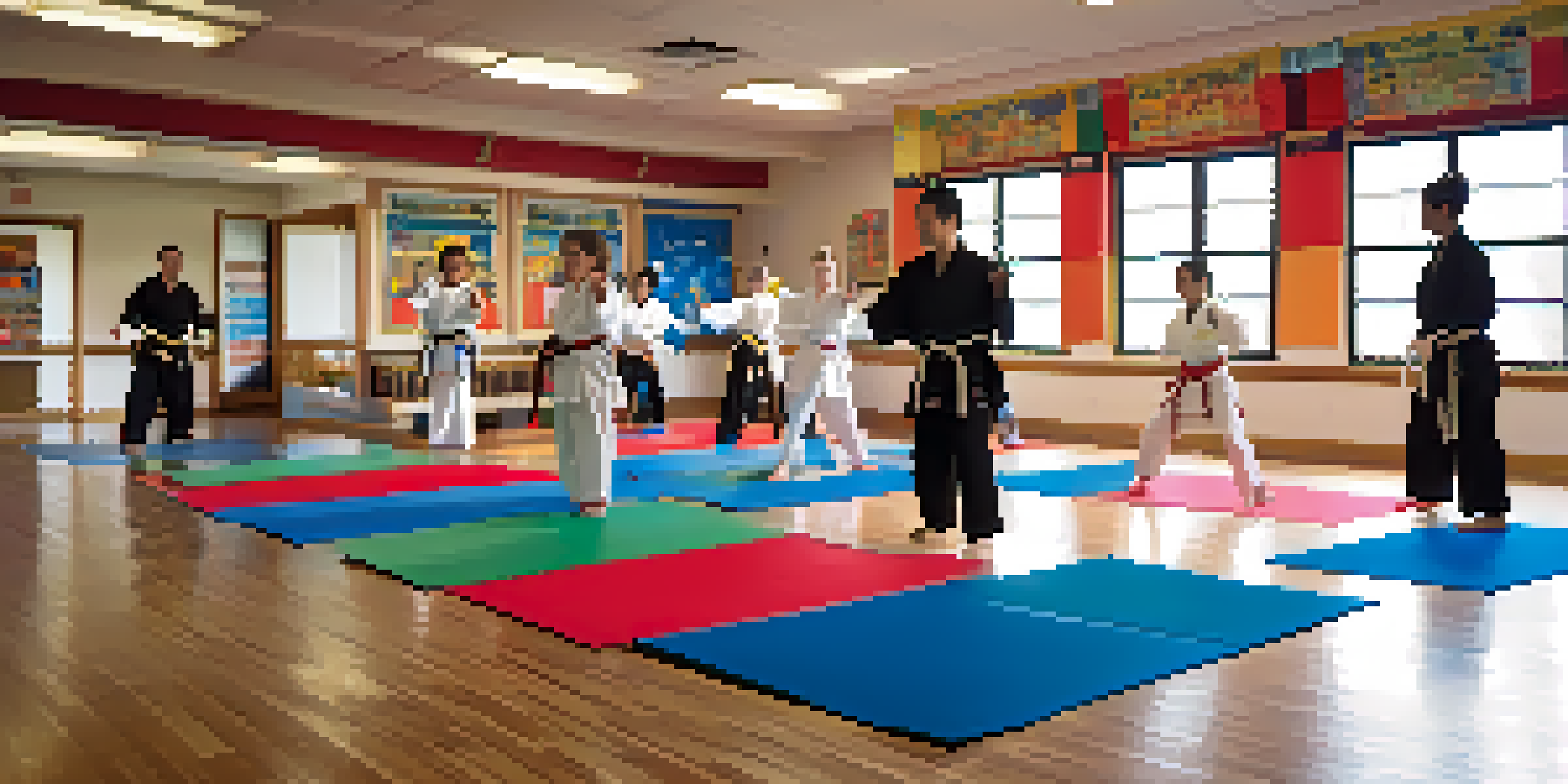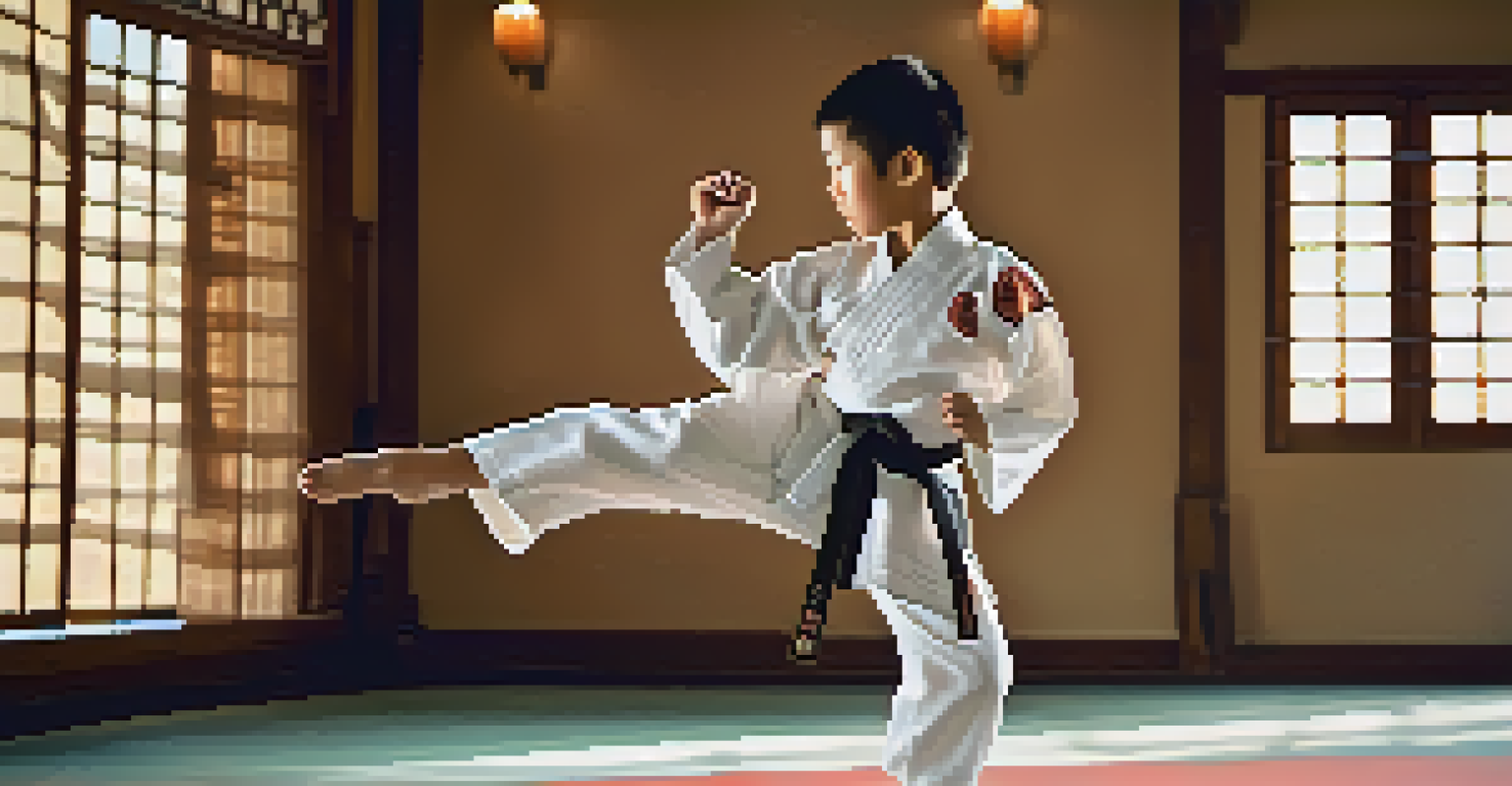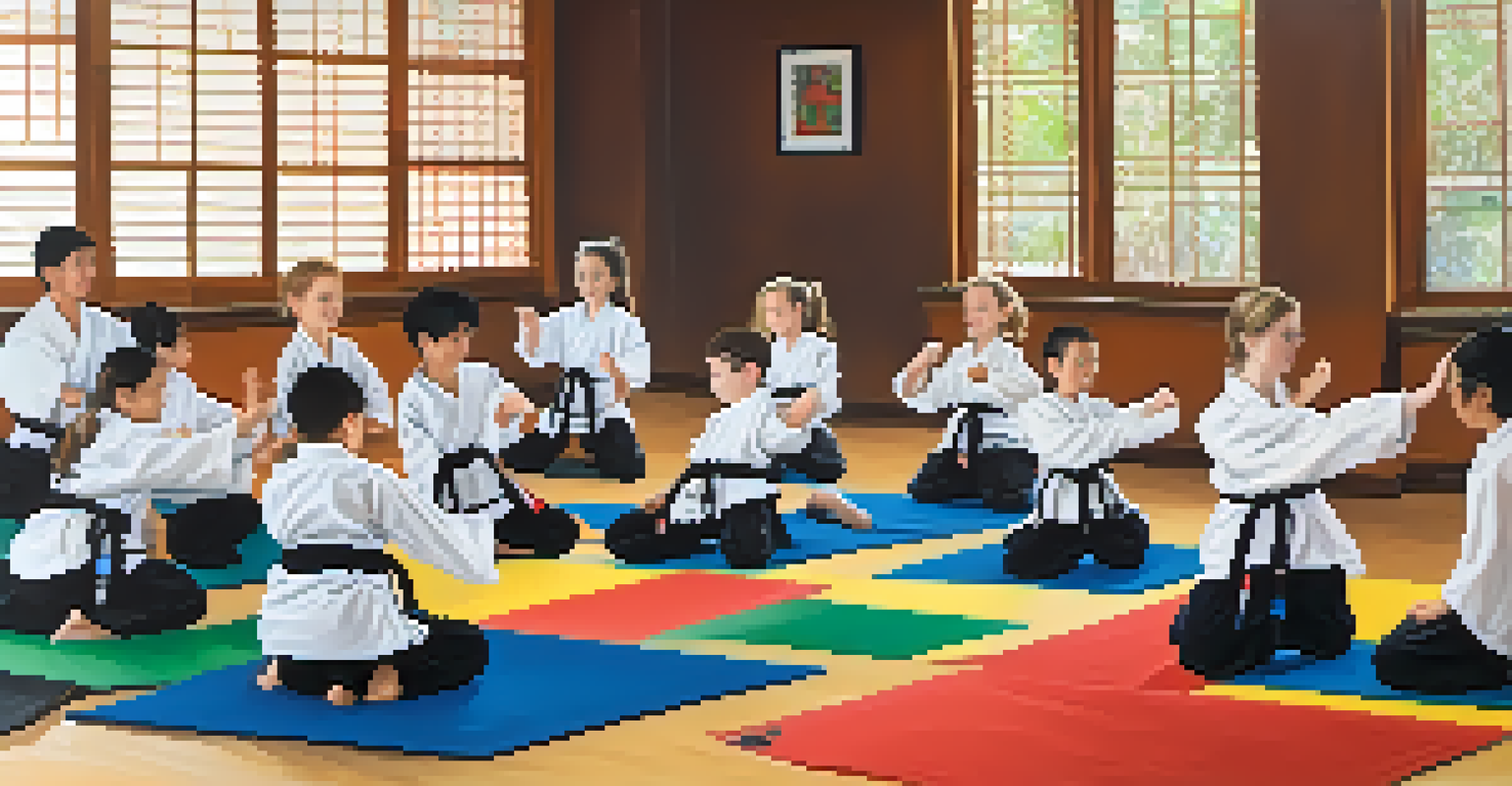Adapting Martial Arts for Individuals on the Autism Spectrum

Understanding Autism and Martial Arts Benefits
Martial arts can be a powerful tool for individuals on the autism spectrum. It offers not just physical exercise but also mental focus, discipline, and social skills. For many, the structured environment of a martial arts class provides a sense of routine that can be comforting and beneficial.
Martial arts teach not only self-defense but also self-discipline, respect, and self-control.
Additionally, martial arts training encourages self-regulation, helping individuals manage their emotions and reactions more effectively. The practice of techniques and forms can enhance motor skills and coordination, which are often areas of challenge for those on the spectrum. Overall, the benefits extend beyond physical fitness to include emotional and social development.
Importantly, martial arts can foster a sense of belonging and community. Many students form strong bonds with their instructors and peers, leading to improved social interactions and friendships. This supportive environment is crucial, as it can help build confidence and self-esteem.
Tailoring Techniques for Diverse Needs
Adapting martial arts techniques is essential for accommodating the diverse needs of individuals on the autism spectrum. Instructors should be trained to identify various sensory sensitivities and adjust their teaching style accordingly. For example, some students may thrive on visual demonstrations, while others may benefit from verbal instructions or hands-on guidance.

It’s also important to consider the pace of instruction. Some individuals may require more time to process information and practice techniques, while others may be able to grasp concepts quickly. By being flexible and patient, instructors can create a supportive learning environment that encourages growth.
Martial Arts Boosts Skills
Martial arts training enhances physical fitness, emotional regulation, and social skills for individuals on the autism spectrum.
Incorporating breaks and sensory-friendly elements into classes can also enhance the experience. For instance, allowing students to take short breaks when feeling overwhelmed or providing sensory tools can make martial arts more accessible and enjoyable.
Creating a Supportive Class Environment
A supportive class environment is vital for fostering a positive experience for students on the autism spectrum. Instructors should establish clear routines and expectations to help students feel secure and engaged. Visual schedules or cues can be beneficial in providing structure and predictability.
The greatest gift you can give someone is your time, your attention, your love, and your concern.
Encouraging open communication is another key element. Students should feel comfortable expressing their needs or concerns, whether it's about a specific technique or their emotional state. Instructors can foster this communication through regular check-ins and by being approachable.
Moreover, encouraging peer support can enhance the class dynamic. Pairing students for practice or team activities can help build social skills and foster friendships, making the martial arts journey more enriching and affirming.
Incorporating Mindfulness Practices
Mindfulness practices can be an excellent addition to martial arts training for individuals on the autism spectrum. Techniques such as deep breathing or visualization can help students manage anxiety and improve focus. Integrating these practices into warm-ups or cooldowns can create a more holistic approach to training.
For example, instructors might guide students through breathing exercises before starting a class, helping them ground themselves and prepare mentally. This practice not only aids concentration but also promotes emotional regulation, which is crucial for many students.
Tailored Teaching Techniques
Instructors should adapt their teaching methods to accommodate diverse sensory needs and learning paces of students.
Encouraging mindfulness helps students cultivate a greater awareness of their bodies and emotions. This self-awareness can translate into improved performance during martial arts practice and daily life interactions.
Fostering Communication and Social Skills
Martial arts can serve as a valuable platform for developing communication and social skills. Classes often require students to interact with instructors and peers, providing opportunities for practicing verbal and non-verbal communication. These interactions can be particularly beneficial for those who struggle with social cues.
Instructors can facilitate social skill development by incorporating team exercises or paired drills that require cooperation and communication. This not only enhances the martial arts experience but also helps students navigate social situations more effectively.
Moreover, celebrating achievements within the class can promote positive social interactions. Recognizing milestones or improvements encourages students to share their successes and support one another, creating a sense of camaraderie.
Parent and Caregiver Involvement
Engaging parents and caregivers is key to the success of martial arts programs for individuals on the autism spectrum. Their insights can provide valuable context regarding their child's specific needs and preferences. Open lines of communication between instructors and families can foster a collaborative approach to training.
Encouraging parents to participate in classes, whether through observation or involvement in activities, can also enhance the experience for students. This involvement can provide reassurance and support, making students feel more comfortable and confident.
Importance of Community Support
Engaging parents and fostering peer interactions create a supportive environment that enhances the martial arts experience.
Additionally, hosting workshops or informational sessions for parents can help them understand the benefits of martial arts and how to support their child's journey. Providing resources or guidance on reinforcing skills at home can further enhance learning outcomes.
Celebrating Progress and Achievements
Recognizing and celebrating progress is crucial in martial arts training, especially for individuals on the autism spectrum. Celebrating milestones, whether big or small, boosts confidence and encourages continued engagement. Instructors can implement reward systems or ceremonies to honor achievements.
For instance, a simple certificate of achievement can motivate students and acknowledge their efforts. By focusing on progress rather than perfection, instructors can create a positive atmosphere that emphasizes personal growth.

Additionally, sharing success stories within the community can inspire other students and families. Highlighting individual journeys showcases the impact of martial arts and encourages others to participate, fostering a sense of community and support.